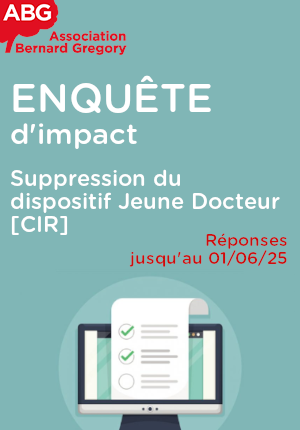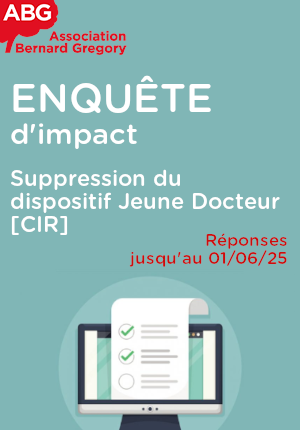Co-GAG : Dérivés de la gelée de Wharton et glycosaminoglycanes : caractérisations biologique et mécanique // Co-GAG : Wharton's jelly derivatives and glycosaminoglycanes : biological and mechanical caracterizations
|
ABG-131994
ADUM-66071 |
Thesis topic | |
| 2025-05-15 | Public funding alone (i.e. government, region, European, international organization research grant) |
Université de Reims Champagne - Ardenne
REIMS - Grand Est - France
Co-GAG : Dérivés de la gelée de Wharton et glycosaminoglycanes : caractérisations biologique et mécanique // Co-GAG : Wharton's jelly derivatives and glycosaminoglycanes : biological and mechanical caracterizations
Hydrogels et impression 3D, Caractérisation mécanique, Biocompatibilité, Culture cellulaire, Imagerie médicale
Hydrogels and 3D printing , mechanical characterization, Biocompatibility, cell culture, medical imaging
Hydrogels and 3D printing , mechanical characterization, Biocompatibility, cell culture, medical imaging
Topic description
Le projet de thèse ambitionne de développer des hydrogels versatiles et multifonctionnels pour la médecine régénératrice et la culture cellulaire. L'originalité de notre approche est d'utiliser les tissus périnataux décellularisés. En effet, les travaux récents de l'équipe ont démontré que ces tissus possèdent des propriétés biologiques intrinsèques pro-régénératrices (i.e. pro-cicatrisante, angiogénique, immunomodulatrice) et antibactérienne/anti-biofilm. Grâce à leur composition riche en collagène et en acide hyaluronique, ces tissus constituent une base particulièrement intéressante pour le développement d'hydrogels multifonctionnels. Or les propriétés biomécaniques des hydrogels influencent fortement le comportement cellulaire que ce soit in vitro ou in vivo après implantation. La caractérisation des propriétés mécaniques des hydrogels est généralement réalisée in vitro à l'échelle locale (indentation) ou macroscopique (rhéologie ou encore par des tests de traction et de compression). Toutefois, l'imagerie par résonance magnétique ouvre de nouvelles perspectives pour l'évaluation temporelle et sous chargement mécanique des hydrogels, en permettant le suivi de l'évolution de leur microstructure. Ces essais peuvent être réalisés avec différentes vitesses de chargement, notamment en conditions dynamiques grâce à l'élastographie. Cet outil, non invasif, permet ainsi d'évaluer, en temps réel, les propriétés mécaniques des hydrogels aussi bien in vitro qu'in vivo après implantation. Dans ce cadre, une collaboration avec le laboratoire iCube (membre du consortium de l'ANR HyCareMat), permettra de mettre en œuvre une caractérisation biomécanique multimodale des hydrogels développés.
------------------------------------------------------------------------------------------------------------------------------------------------------------------------
------------------------------------------------------------------------------------------------------------------------------------------------------------------------
The doctoral project aims to develop versatile and multifunctional hydrogels for regenerative medicine and cell culture. The originality of our approach lies in the use of decellularized perinatal tissues. Indeed, recent work by the team has demonstrated that these decellularized tissues possess intrinsic pro-regenerative and antibacterial properties. Thanks to their composition, which is rich in collagen and hyaluronic acid, these tissues offer a strong foundation for developing multifunctional hydrogels. The biomechanical properties of hydrogels play a critical role in modulating cellular behavior both in vitro and in vivo post-implantation. Mechanical characterization is typically performed in vitro at either the local or macroscopic scale. Magnetic resonance imaging (MRI) opens new perspectives for time-resolved and mechanically loaded evaluations of hydrogels by tracking changes in their microstructure. Such tests can be conducted at various loading speeds, particularly under dynamic conditions, through elastography. This non-invasive tool allows for real-time assessment of the mechanical properties of hydrogels, both in vitro and in vivo after implantation. In this context, a collaboration with the iCube laboratory (a member of the ANR HyCareMat consortium) will enable the implementation of multimodal biomechanical characterization of the developed hydrogels.
------------------------------------------------------------------------------------------------------------------------------------------------------------------------
------------------------------------------------------------------------------------------------------------------------------------------------------------------------
Début de la thèse : 01/10/2025
------------------------------------------------------------------------------------------------------------------------------------------------------------------------
------------------------------------------------------------------------------------------------------------------------------------------------------------------------
The doctoral project aims to develop versatile and multifunctional hydrogels for regenerative medicine and cell culture. The originality of our approach lies in the use of decellularized perinatal tissues. Indeed, recent work by the team has demonstrated that these decellularized tissues possess intrinsic pro-regenerative and antibacterial properties. Thanks to their composition, which is rich in collagen and hyaluronic acid, these tissues offer a strong foundation for developing multifunctional hydrogels. The biomechanical properties of hydrogels play a critical role in modulating cellular behavior both in vitro and in vivo post-implantation. Mechanical characterization is typically performed in vitro at either the local or macroscopic scale. Magnetic resonance imaging (MRI) opens new perspectives for time-resolved and mechanically loaded evaluations of hydrogels by tracking changes in their microstructure. Such tests can be conducted at various loading speeds, particularly under dynamic conditions, through elastography. This non-invasive tool allows for real-time assessment of the mechanical properties of hydrogels, both in vitro and in vivo after implantation. In this context, a collaboration with the iCube laboratory (a member of the ANR HyCareMat consortium) will enable the implementation of multimodal biomechanical characterization of the developed hydrogels.
------------------------------------------------------------------------------------------------------------------------------------------------------------------------
------------------------------------------------------------------------------------------------------------------------------------------------------------------------
Début de la thèse : 01/10/2025
Funding category
Public funding alone (i.e. government, region, European, international organization research grant)
Funding further details
Concours pour un contrat doctoral
Presentation of host institution and host laboratory
Université de Reims Champagne - Ardenne
Institution awarding doctoral degree
Université de Reims Champagne - Ardenne
Graduate school
619 Biologie - Chimie - Santé
Candidate's profile
2025-06-08
Apply
Close
Vous avez déjà un compte ?
Nouvel utilisateur ?
More information about ABG?
Get ABG’s monthly newsletters including news, job offers, grants & fellowships and a selection of relevant events…
Discover our members
 Laboratoire National de Métrologie et d'Essais - LNE
Laboratoire National de Métrologie et d'Essais - LNE  ADEME
ADEME  Tecknowmetrix
Tecknowmetrix  CESI
CESI  ASNR - Autorité de sûreté nucléaire et de radioprotection - Siège
ASNR - Autorité de sûreté nucléaire et de radioprotection - Siège  Ifremer
Ifremer  SUEZ
SUEZ  CASDEN
CASDEN  Institut Sup'biotech de Paris
Institut Sup'biotech de Paris  PhDOOC
PhDOOC  Nokia Bell Labs France
Nokia Bell Labs France  Généthon
Généthon  ONERA - The French Aerospace Lab
ONERA - The French Aerospace Lab  Groupe AFNOR - Association française de normalisation
Groupe AFNOR - Association française de normalisation  ANRT
ANRT  MabDesign
MabDesign  TotalEnergies
TotalEnergies  Aérocentre, Pôle d'excellence régional
Aérocentre, Pôle d'excellence régional  MabDesign
MabDesign







